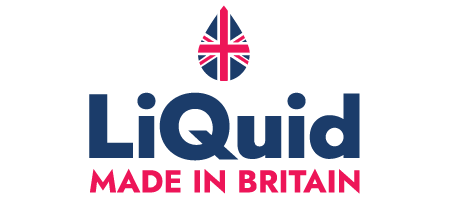New Zealand has made headlines recently in the BBC and indeed worldwide, by introducing new laws restricting the sale of tobacco products which have been hailed as “world-leading” by healthcare officials and doctors across the small island nation.
This news comes after the UK also experienced a number of proposed changes to it’s tobacco legislation throughout 2021. This included raising the legal age of sale from 18 to 21, and even going so far as to send out a national rallying cry to vaping manufacturers to create medically licensed vaping devices to bolster national stop-smoking services.
Seeing such action by both the UK and NZ governments is no coincidence – both nations are working towards achieving a “smoke free generation”, which would see national smoking levels drop to 5% or below in both cases. Where things differ however is the timing, the UK has set 2030 as it’s deadline, whereas ambitious New Zealand is aiming for 2025.
What are New Zealand’s New Tobacco Laws?
To meet it’s proposed deadline for a smoke free future, NZ has proposed a total ban on the sale of tobacco products which applies to anyone born after 2008. This would essentially nip the problem in the bud and, according to Professor Jane Hook of New Zealand’s Otago University: “help people quit or switch to less harmful products, and make it much less likely that young people get addicted to nicotine."
The ban is not the only restriction expected to be implemented in 2022. In addition, the nicotine levels within the cigarettes themselves will be limited and the number of stores nationally who are licensed to sell tobacco will be cut from 8000 to less than 500. This means that even those who are born outside of the range impacted by the ban could face challenges in getting hold of cigarettes conveniently, and even then, they won’t satisfy like they used to thanks to a lower nicotine content.
Why is New Zealand Making these Changes?
The UK faced a massive increase to the number of young smokers during the covid-19 pandemic which has spurred on the actions described earlier, in fear that they may not hit their targets on the proposed 2030 timeline. While New Zealand has not had a similar issue, they too have their own concerns surrounding their nation's smoking population.
Currently New Zealand has an adult smoking rate of 13%, which may not sound too high but we must factor in the far smaller national population when compared to the UK – 5 million, less than London by itself. Within this 13% the native Māori population is being hit the hardest, with one third of all adults being active smokers. As a result, these communities suffer far higher rates of disease and death. Something their government wishes to remedy as quickly as possible.
In all, the new legislation is intended to protect and preserve the future of the New Zealand culture and it’s diverse communities, preventing further youth uptake by law while weeding out the last stalwart smokers and guiding them onto a new path. This, much as in the UK, would lessen the pressures faced by healthcare services and improve the daily lives of many people.
How Have People Reacted to the Proposition?
In general, the new laws have been met with positivity, but this is not the case for everyone. Healthcare officials have naturally backed the decision and are driving it through NZ parliament with earnest. With the laws currently expected to take full effect within the next year.
The proposed restrictions will of course heavily impact retailers, of whom more than two thirds could lose their authority to sell tobacco products, to the severe detriment of their profit margins. The Dairy and Business Owners Group (DBOG) is a lobbyist organisation representing convenience retailers which has spoken out against the proposition.
Sunny Kaushal, the DBOG chairman said: “This is all 100% theory and 0% substance. There’s going to be a crime wave, gangs and criminals will fill the gap”. He refers to the growing fears amongst New Zealanders that in the wake of an all-out ban, a black market will rise to provide people with illicit tobacco products instead.
The NZ government has said in response that extra resources would need to be made available to their border control forces to prevent such a market from taking root, however the topic remains a subject of heated debate.
Beyond this, the effectiveness of the proposal has been called into question as seen in The Guardian, wherein a likeness has been drawn by columnist Eleanor Margolis to the 1920’s prohibition era, which found limited success and ultimately played into the hands of criminals.
Despite fears, some members of the public have noticed a prevalence of youth smoking and view the proposed laws as a good way to curb this and preserve public health, touting the new tactics as “a good move.”
Will the New Zealand Tobacco Ban Affect Vaping?
In short, no. vaping was actually adopted into New Zealand’s stop smoking services as far back as 2017, a long time before the UK considered such a move. As such vaping products are still viewed as a valid pathway away from smoking that it wishes to maintain.
It has however been recognised that vaping has now won the popularity contest against cigarettes among NZ’s younger demographics. Officials have stated that despite it’s use as a cessation tool, people should still be aware that vapes can deliver harmful agents into the body, albeit to a lesser extent than cigarette smoke.
Time will now tell if the laws will eventually extend to NZ’s vaping products also. It does however seem likely that if our Commonwealth neighbours find success with their proposed ban, we may see similar restrictions take hold in the UK – how would you feel about such a decision?



